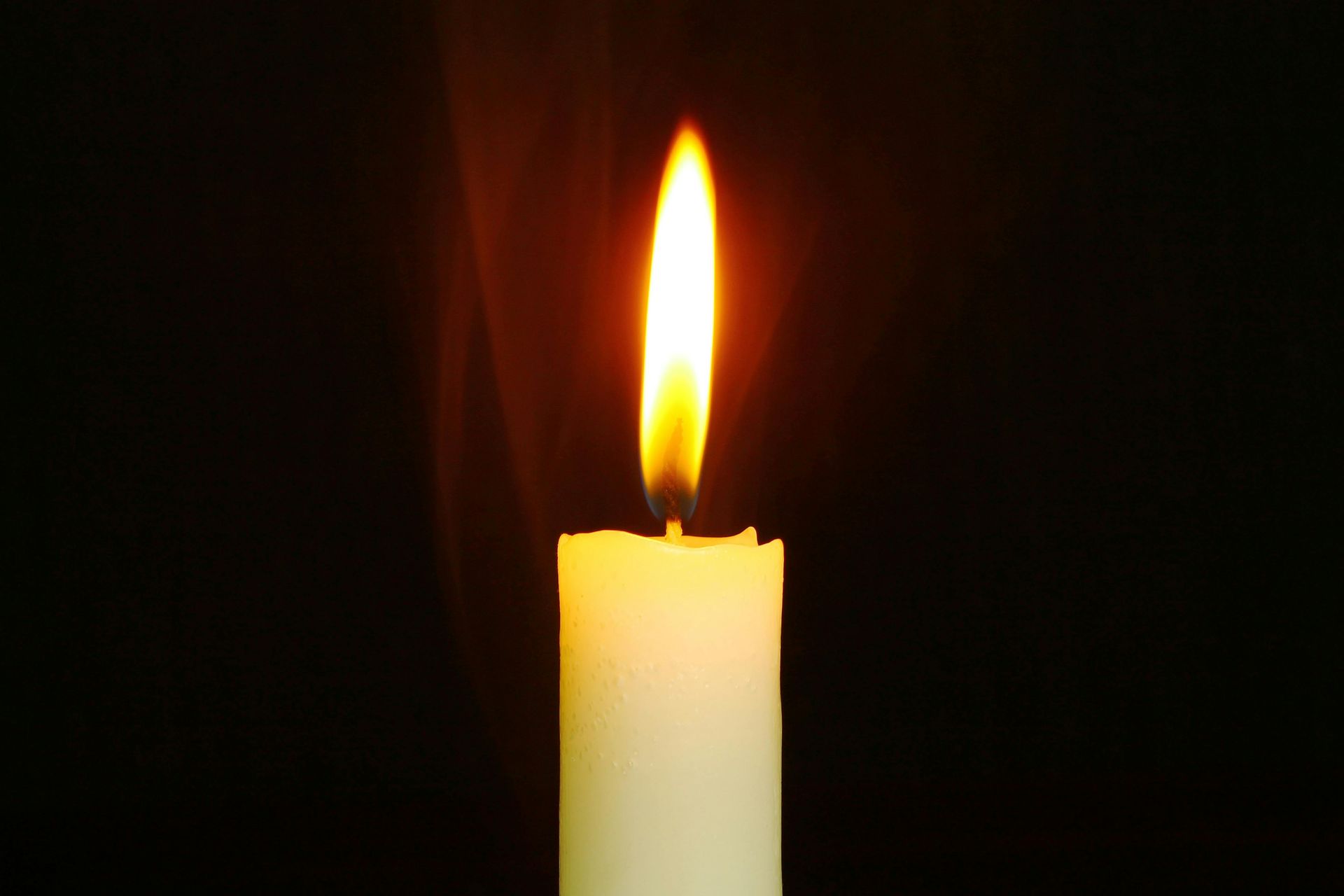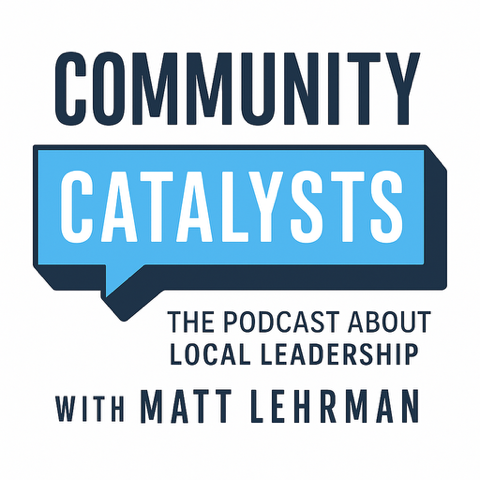A Season for Asking Better Questions
A Season for Asking Better Questions
Reflections from the November 2025 Local Leadership Chat
By Matt Lehrman
Social Prosperity Partners
As the year draws to a close, it helps to remember that strong New Year's Resolutions don’t actually begin in January. They begin with the questions we ask before making any commitment. These final weeks offer room for Year-End Contemplations — a season to pause, open up, and be curious about what truly deserves our attention. When we give ourselves that space to wonder first, the choices we make for the year ahead become clearer and more grounded.
That spirit shaped our
November Local Leadership Chat, which opened up a wide-ranging exploration of the questions most present on the minds of local leaders today.
Living with “unexpected leadership”
We began with a question that many leaders quietly carry: What happens when leadership changes and you have no control over who walks through the door?
One participant asked bluntly,
“How do I prepare for the absolute unknown of what leadership will look like a year from now?” Their mayor has served for more than a decade. A new mayor is guaranteed at the next election, and the staff knows the future leader could be anyone who meets basic residency and age requirements. As another person put it,
“It could just be a random person who meets the residency requirement… there’s no business requirement, no knowledge requirement.”
Someone serving on a school board related immediately, describing
“unexpected leadership” as something that “would give me anxiety.” The question behind the question was simple and honest:
“Who am I going to work with next? How is that going to work?”
We talked about the “dance” of governance. I shared a memory of a professor who said that people who understand politics often appreciate the art of dance:
“People moving through space gracefully around other people who are also moving through space.” The concern in the group was that a new leader might arrive who is not prepared for that dance at all. As one person joked,
“When you don’t know if that person is classically trained or a break dancer… or even has legs.”
Underneath the humor was a serious leadership question: How do we prepare ourselves, our staff, and our community for new leadership that may arrive with very different skills, expectations, and values?
Education, struggle, and standards
From there, the conversation moved into education, which turned out to be a deep well of concern.
One participant voiced what many are feeling: “How did we get to a place where public schools are failing so badly?” They described students graduating high school with “a second-grade reading level,” needing remedial work just to function in college, and asked whether we have “failed our next generations and continue to fail.”
Another person suggested reframing the question: “Is that really the question… or is the question more about how do we get out of the situation we’re in?” The group agreed that understanding how we arrived here matters, but only if it leads to a more constructive path forward.
Several voices emphasized the importance of struggle in learning. One person used a vivid comparison: “Learning comes from struggling. Struggling and then you move through that… that exhilaration after you make it through the struggle. That’s when you learn.” They noted that we accept “no pain, no gain” in physical exercise but often resist the same principle in education.
At the same time, an experienced educator reminded us of the nuance required: “Discomfort is growth, maybe not pain, but discomfort.” The challenge is helping students stretch without shutting down. “As soon as you stop understanding what I’m saying, you stop listening, you stop learning, and you stop growing.”
The conversation broadened into questions of parental expectations, funding formulas, and culture. One participant observed that communities with high parental engagement often push teachers to set higher standards, regardless of funding: “It’s not always about how much money you have. It’s about whether parents put a high standard on education and give teachers permission to challenge students.”
Yet another pointed out the danger of locking into conclusions too quickly. When we start with, “The system has failed, full stop,” we can unintentionally put people on the defensive, especially those who have poured their lives into that system in good faith. The question that emerged was more open: How do we express concern about failure and urgency for change in ways that invite collaboration rather than hardening opposition?
Elections, trust, and the duty to show up
At one point, I added a question that has been on my own mind: what is our responsibility, as local leaders, to the health of the election systems we depend on?
In towns, cities, and school districts, we do not run the elections ourselves. We rely on processes managed by counties and states, and most of the time we simply “abide by the way that process goes.” But we have also seen, in recent years, the fragility of our system of government and the many ways that trust in elections can be shaken.
So the question I put to the group was this: “Should everyone who serves in local government have a duty to step up and help ensure our election processes are solid and trusted?”
Not because we doubt the integrity of every election office, but because our confidence in the system would be stronger if we showed up as volunteers and poll workers instead of just assuming everything works. We must not assume that these systems are self-correcting, indestructible, or beyond our responsibility. Even asking the question changes how we think about our duty to democracy at the local level.
Vision, strategic planning, and steadying the ship
We then shifted to a different kind of question: If your community could pause together for just one hour, what question would you most want people to wrestle with?
One person offered a beautiful, forward-looking prompt: “How do we see our community in 20 years, and what vision could we aspire to?” They described this vision as a “North Star” for decision-making: “Every decision you make, you should think about the vision you have in front of you. If it doesn’t serve the vision, why are you doing it?”
I shared a pair of questions I often use when facilitating community visioning:
“What do you appreciate that exists in our community today thanks to the efforts of people more than 20 years ago?”
And then, “What could we advance or create today that people in our community will be thankful for 20 years from now?”
Several participants tied this directly to strategic planning. In some communities, leadership turns over quickly and there is no shared written plan. One person described their city as facing the arrival of a new mayor without any current strategic plan: “I’m a firm believer in having organizational goals set out so no matter who comes in, you already know what direction the community is headed.” Without that, they said, “everything is subject to change.”
Another participant contrasted that with a school district that had recently completed a thoughtful strategic planning process, asking: Are we doing the same for our cities and towns, or does planning only happen in certain parts of our public life?
This led to an additional question we added to our “New Year’s Prologue” list: Have we articulated our direction clearly enough that when leadership changes, the community can tell whether we are continuing a shared trajectory or suddenly turning the wheel?
Division, “eternal wrestling matches,” and the possibility of unity
As we went deeper, someone raised what they called “the elephant in the room.” In their community, residents are sharply divided between those who want more development and those who want to preserve the town as it was decades ago. Their question: “Is there even a possible way for those two opposing forces to unify in a forward direction when both are so adamant that their way is the only right way?”
Then came a line that could easily serve as the headline for the entire conversation:
“Do people just like to stay in that eternal wrestling match because that’s the way it’s always been?”
Another participant added that, in their view, “The majority of people are more reasonable than we know,” but our systems tend to elevate the loudest and most entrenched voices. Someone else asked whether we are being misrepresented by this dynamic: “Are we misrepresented in many ways? Is there a way to find consensus through conversation and prioritize together in a way that’s focused on results and not platforms?”
Those questions cut to the heart of civic leadership in our time. Are we content to keep reenacting the same battles, or are we willing to create spaces where people can step outside their usual roles, listen, and discover what they might have in common?
Cynicism, “voting no on everything,” and feeling powerless
The conversation also surfaced the frustration of trying to lead in an environment of cynicism.
One person described a town where certain voters have adopted a reflexive strategy: “Let’s just vote no on everything.” They shared the difficulty of living in a second year of a default budget, despite “some budgets that have a 0% increase in two years,” and even watching people vote no on grants and “free money” that would fund food pantries and youth programs. Their question: “How do we get through to people who literally go down the ballot and vote no on every single item?”
Another participant connected that behavior to a deeper sense of powerlessness: “What’s the point? Nothing ever changes, our voices don’t matter.” They told a story of contributing more than twenty hours to a strategic planning process, only to see none of the community input reflected in the final plan. For them, this confirmed the worry that, “We’re completely dismissed all the time.”
The group recognized the pattern: when people repeatedly feel ignored, disengagement and negativity follow. The question becomes: How do we rebuild trust in public processes so that people feel their time, voice, and experience matter?
Power, fairness, and the courage to name what is wrong
Later, we heard about communities where long-time insiders still wield outsized informal influence. Former officeholders call staff directly. Some residents can “quickly get someone on the phone,” even the police, while others are fined and can barely get a call returned. One person explained, “Most people are unhappy about it, but they say, ‘Why bother? Just let them do their thing,’ and go along.”
Their question was simple and courageous: “Maybe the water needs to be stirred.”
Another participant, speaking from a staff perspective, highlighted a different side of the same problem: “I didn’t know I could say no,” they reported hearing from employees. For years, employees had assumed that old power relationships still governed their work. The real question, they suggested, was whether staff know that leadership will back them when they resist undue influence.
And then there was the voice of someone who simply refuses to postpone hard questions. This person spoke of their role by saying things like, “I believe in being fair and honest, consistent and accountable for myself and others,” and, “I don’t do the good old boy system. Rules apply to everybody.” Their standard was clear: “I’m going to treat you right, and I’m going to teach you how you’re going to treat me.”
They summed up their courage this way: “If everybody votes against me, I’m still going to stand for what is right.”
That conviction brought a kind of hopeful energy to the conversation. It reminded us that even in systems that feel stuck, individual leaders can choose to act with integrity, clarity, and kindness.
Our Year-End Contemplations: questions we are carrying
By the end of the Chat, we had surfaced a powerful set of questions. A few that stayed with me:
How do we prepare ourselves and our organizations for new leadership that may arrive with no shared history and no predictable skill set?
How do we talk about disappointment and failure in ways that are honest and urgent, yet still invite collaboration from people who have devoted their careers and best efforts to the cause?
What is our responsibility, as local leaders, to strengthen trust in elections, including by volunteering in systems that are run by others?
How do we build and sustain a shared vision or strategic plan so that leadership transitions do not send our communities lurching from one direction to another?
Are the people in our communities dissatisfied with “eternal wrestling matches,” and would they welcome spaces where people can genuinely listen and work toward shared priorities?
How do we restore people’s sense that their voices matter, so they are not tempted to simply “vote no on everything”?
Where are we tolerating informal power systems that undermine fairness, and what would it take to “stir the water” in constructive ways?
None of these questions has easy answers. That is precisely why they belong in our minds as the year ends.
An invitation
Good questions have power. They open us up. They create space for new possibilities. They help us see ourselves and our communities from fresh angles. Just as a resolution can push us into action, the right question can pull us toward insight. And once a truly good question has been asked, it is very hard to un-ask it.
As a civic facilitator, this is the work I care about most: bringing people together to ask important questions in ways that are meaningful and productive. If any of these questions resonate with you, or if there are others you are carrying into the new year, I would be honored to hear them.
Reach out and share what is on your mind. Your questions may be exactly what another community needs to consider. And together, in conversation, we can help make 2026 a year not only of resolutions, but of thoughtful, shared reflection on the work of leading and governing together.
Connect with Matt:
- Email me at Matt@SocialProsperity.us.
- Follow me on Facebook, Instagram, YouTube and LinkedIn.
- Learn more at SocialProsperity.us and MattLehrman.com.




